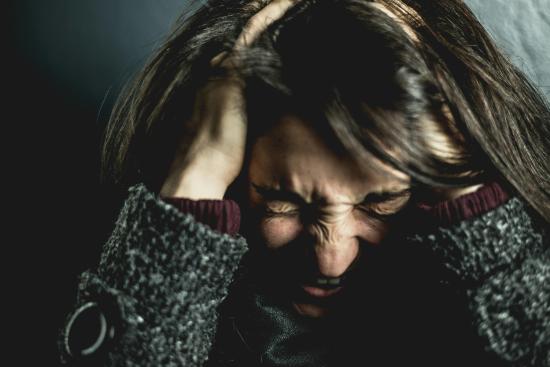Stress Observatory
L'Observatoire du stress, 2025 edition* :
the French are increasingly stressed
Nearly 6 out of 10 French people say they will be stressed in 2025, a significant increase (+18 points) on 2017. The Ramsay Sante Foundation, via its Observatoire du Stress, draws up an alarming report on the causes and consequences of stress in France, with a comparison between Sweden and Italy.
*OpinionWay survey for the Ramsay Sante Foundation
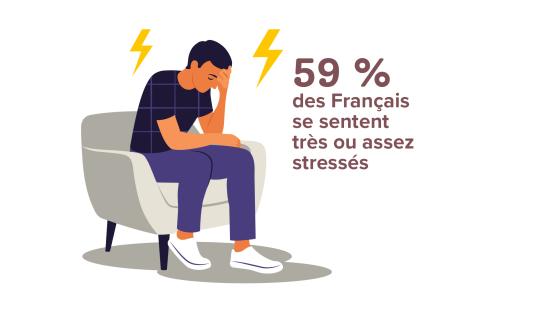
Ever-increasing stress
According to the second edition of the Ramsay Sante Foundation's Observatoire du Stress, carried out with OpinionWay, 59% of French people will be stressed in 2025, compared with 51% in 2017.
This figure is equivalent to that of Sweden, but well above that of Italy (41%). Even more worryingly, 43% of French people feel that their stress levels have increased over the past three years.
Women and young people on the front line
The study reveals some striking disparities. Women are particularly affected, with 67% reporting stress, compared with 48% of men. A number of factors explain this difference, not least the mental burden placed on women, between family and professional responsibilities.
Young people under 35 are three times more stressed than those over 50 (24% vs. 8%). The pressure of studying, job insecurity and uncertainty about the future of the economy and climate are all sources of anxiety for this generation. This chronic stress can have deleterious effects on their mental well-being.
The main causes of stress
Personal life tops the list of sources of stress for 41% of French people, followed by financial difficulties (34%) and professional life (34%). Financial problems hit the under-35s hardest (41%).
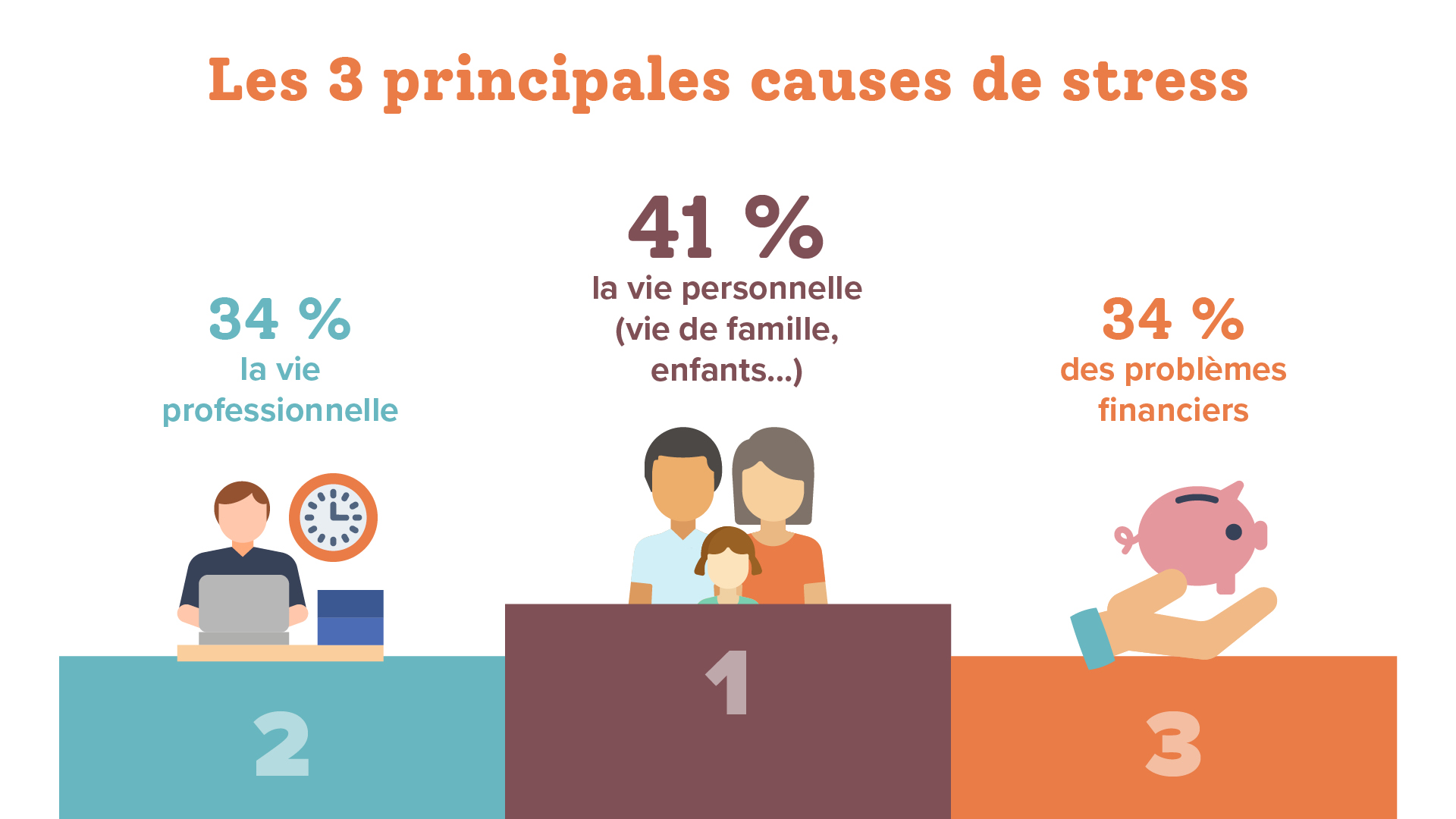
Another finding: in 2017, work-related stress was the leading cause of stress, showing a shift in French people's concerns. The rise in financial and personal concerns reflects a shift in people's priorities and worries, influenced by the soaring cost of living and changes in the world of work.
Major health consequences
Stress has a direct impact on health. 59% of French people report sleep problems, an effect also observed in Sweden (58%) and Italy (50%). Sleep deprivation leads to a vicious circle: the more tired you are, the more vulnerable you are to stress, and vice versa.

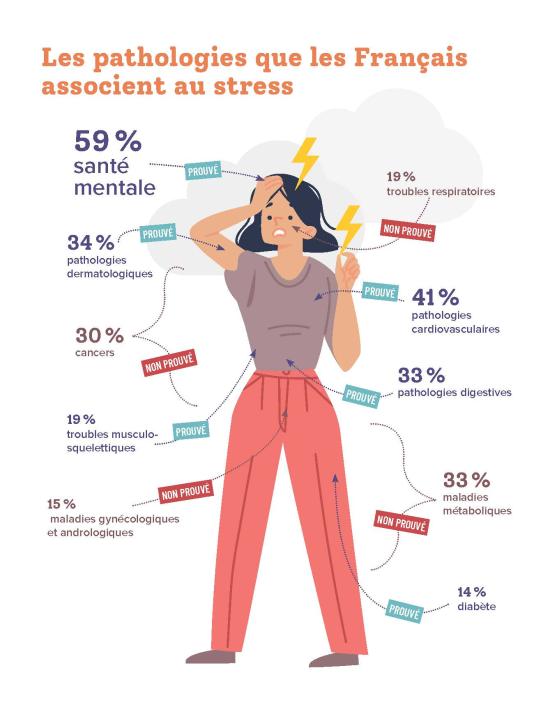
Behavioral disorders (44%), family tensions (39%) and addiction problems (16%, up from 9% in 2017) are also among the consequences reported. The increase in addictions bears witness to the growing difficulty of managing stress on a daily basis.
Furthermore, 94% of French people are convinced that stress can have long-term consequences on health, a figure similar to that observed in Sweden (94%), but slightly lower than in Italy (98%).
In France, women are more likely to share this belief (95% versus 92% of men). Note that in 2017, only 79% of men believed that stress could have such repercussions, compared with 86% of women, showing a marked shift in awareness on this subject.
Over the long term, then, the French identify mental health problems (59%), cardiovascular pathologies (41%) and dermatological diseases (34%) as direct consequences of stress. These results confirm the close link between stress and chronic illnesses that weigh heavily on the healthcare system.
Sport: the number 1 ally in the fight against stress
In the face of stress, sport is the preferred solution: 45% of people use it to relieve pressure. The consensus on sport is clear: 51% of men and 40% of women see it as an excellent stress management tool. Other strategies are also favoured, such as talking to friends and family (29%) or taking part in relaxing activities such as yoga, meditation or relaxation (25%).
Women seem to turn more to those around them to express their emotions (35% versus 22% of men). It's worth noting that 12% say they consult a psychologist on this subject, versus 8% in 2017.
Different sources of information for different ages
Health professionals are the main source of information for the French (26% of responses, vs. 23% in Sweden and 30% in Italy). Next come friends and family (19%) and social networks (11%), on a par with television (11%).
Among the under-35s, social networks are the leading source of information on stress (26%), far ahead of friends and family (19%) and healthcare professionals (13%).
As for the idea of measuring stress, 54% of French people say they would be interested in using a "stress scale" to measure their stress levels, and 39% would be ready to act on the results. In comparison, 60% of Swedes and 73% of Italians said they would be prepared to use such a scale.
Young people, a generation under pressure
The study highlights a particularly worrying situation for young people aged 18-24. 68% say they are stressed, a figure well above the national average, and 52% feel that their stress has increased over the last three years.
The main causes? Studies (59%), financial problems (38%) and professional life (38%). The pressure to succeed in an uncertain world, coupled with economic instability, accentuates their anxiety levels.
Notable consequences: 54% suffer from sleep disorders, 33% feel nervous and 29% report eating disorders (13 points higher than the national average). These figures are all the more worrying as they can have lasting repercussions on their health and personal development.
For information on stress, young people overwhelmingly turn to social networks (34%), far ahead of friends and family (22%) and healthcare professionals (8%). This trend underscores the need to step up information campaigns and prevention measures accessible to young people, particularly on the platforms they use every day.
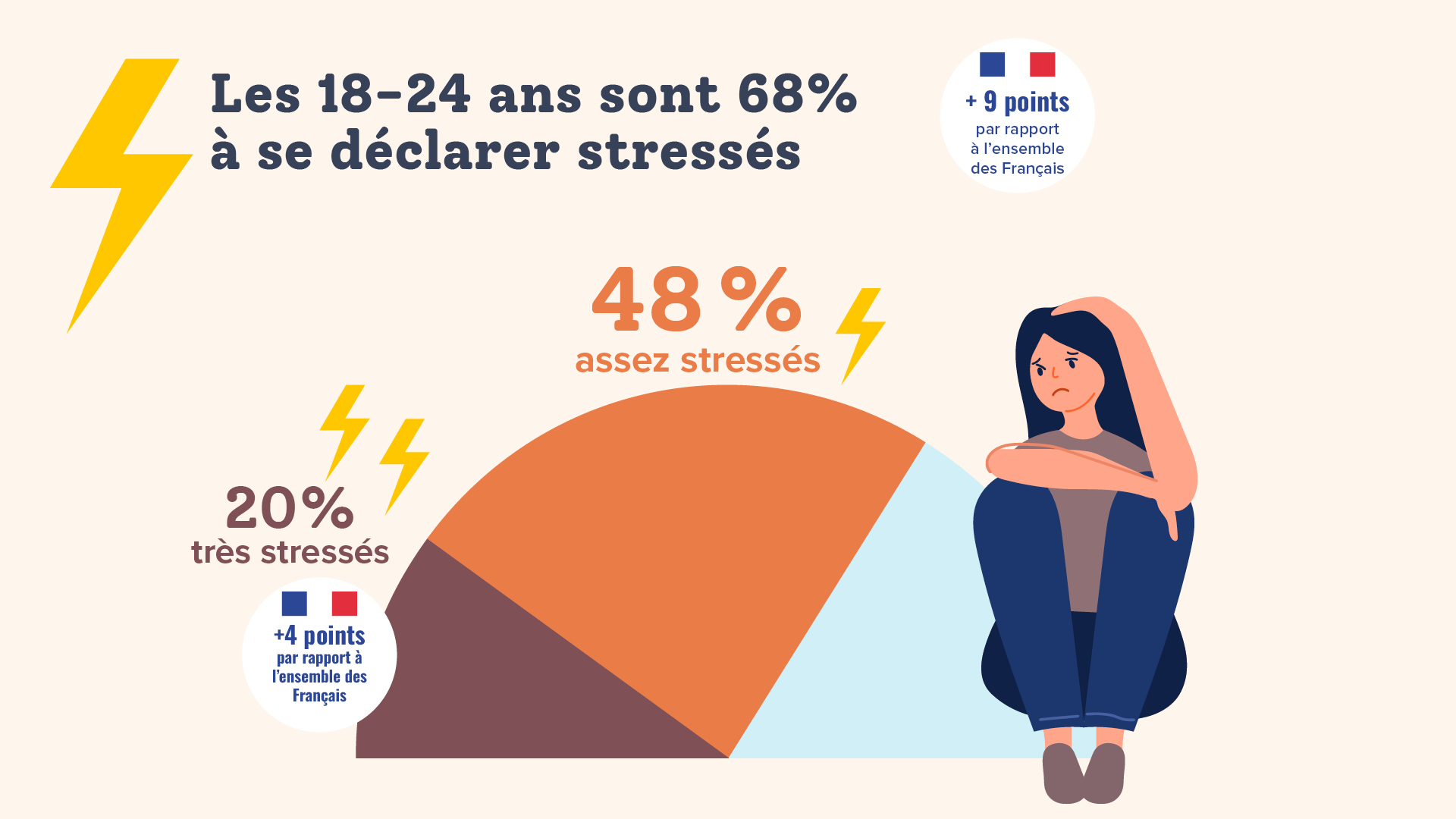
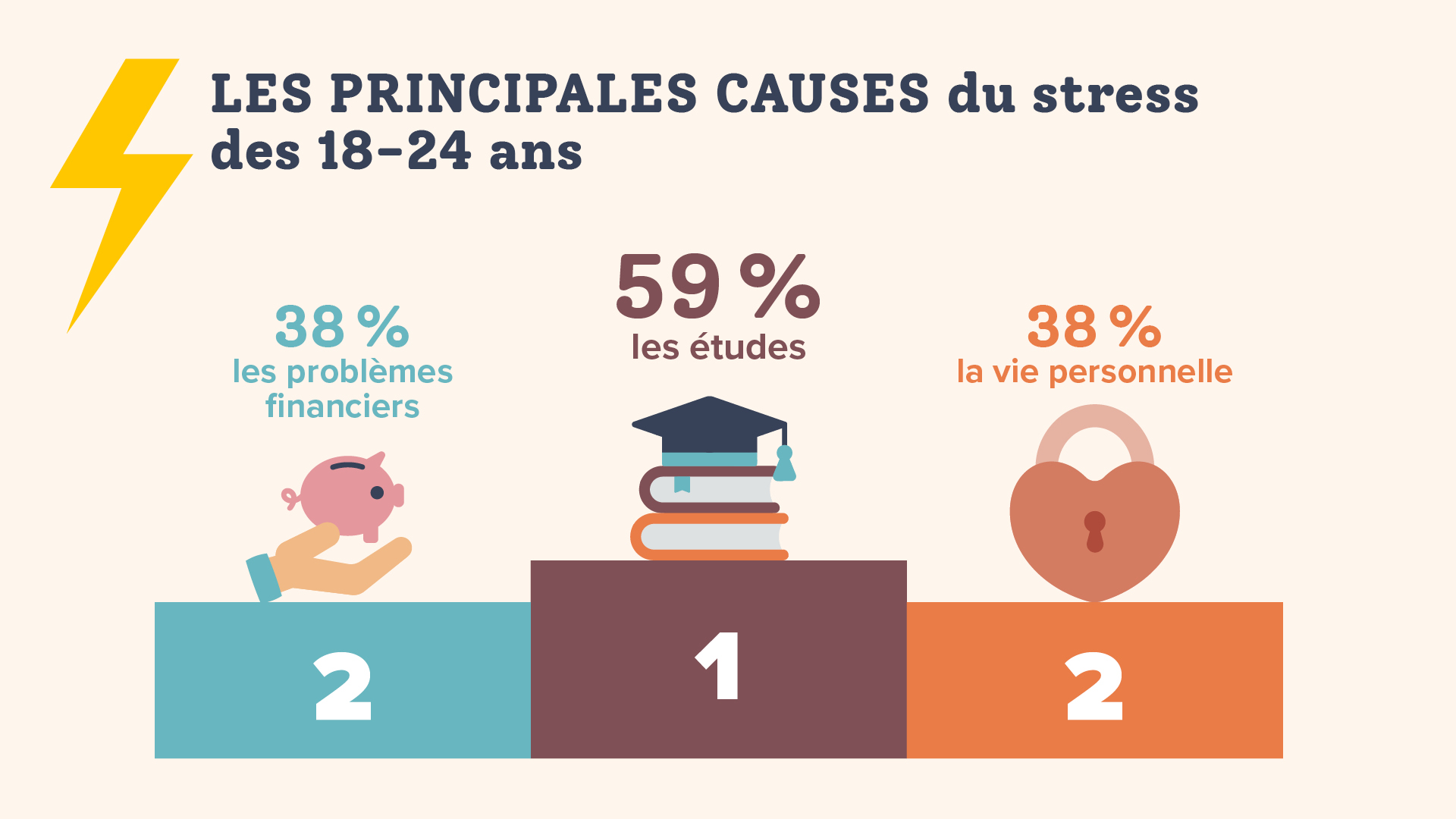
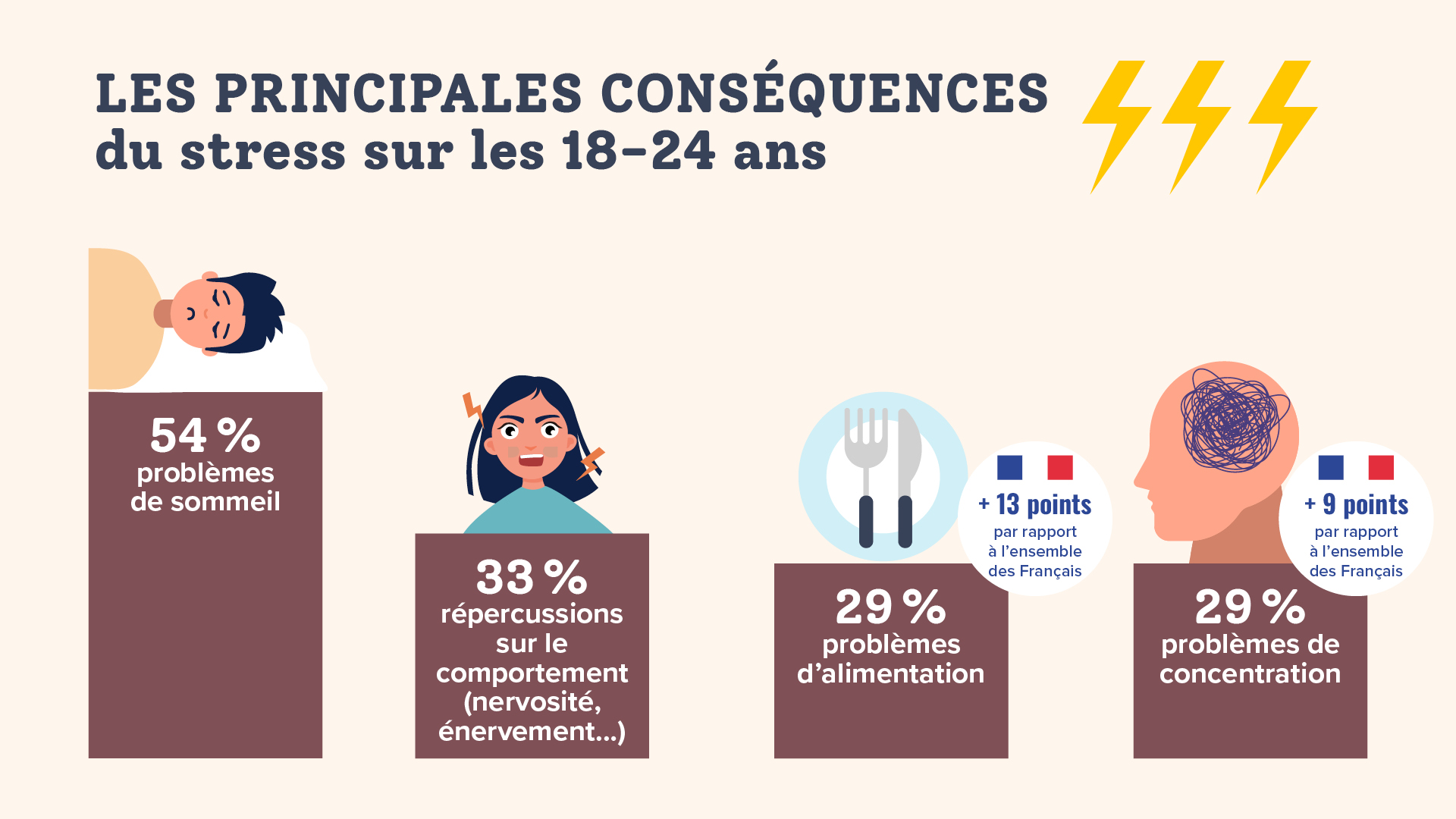

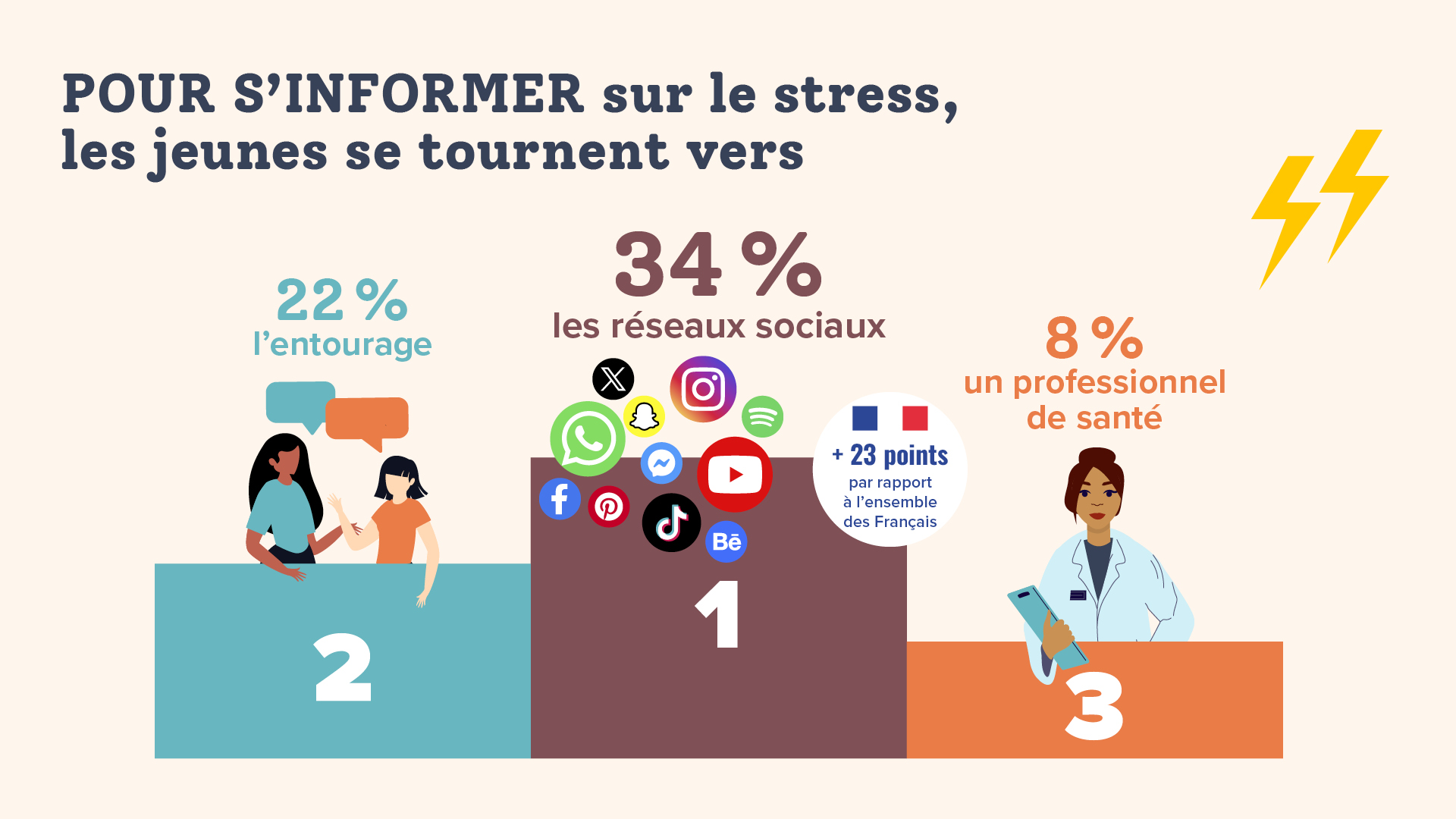
Graphic design: studio@gayacom.fr - Illustrations: © Shutterstock - © Freepik
